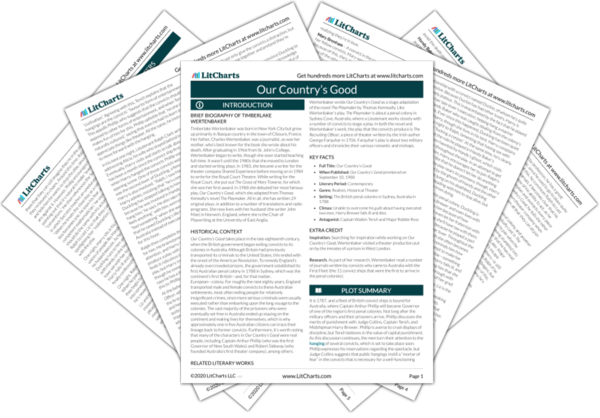Phillip’s assertion that “no one is born naturally cultured” emphasizes his belief that personalities are formed, not innately inherited. This is an important idea, since it suggests that everyone is capable of changing themselves. Still, this mentality doesn’t quite align with the conditions of the penal colony, which has seemingly been created to punish criminals, not to reform them. This, it seems, is what Judge Collins points out by saying that—since they hardly have any resources to help the convicts change—they might as well concentrate on carrying out standard forms of punishment.
